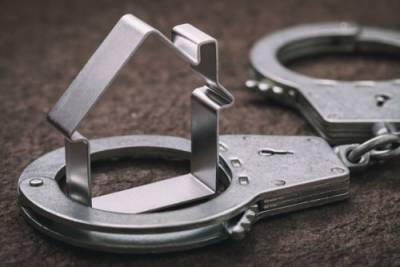Recent Blog Posts
Should Prison Sentences in the United States Be Limited to 20 Years?
 Mass incarceration is a major concern that has affected our criminal justice system. The United States has the highest rate of incarceration in the world, and over two million people are currently serving prison sentences. More than 50 percent of the people in American prisons are serving sentences of 10 years or more, and one out of every seven people who are incarcerated have been sentenced to life in prison. As part of their ongoing calls for criminal justice reform, advocates have stated that prison reform measures should be put in place, including a 20-year cap on sentences, reduced sentences for all criminal offenses, and other reforms that would reduce the prison population and improve rehabilitation rates.
Mass incarceration is a major concern that has affected our criminal justice system. The United States has the highest rate of incarceration in the world, and over two million people are currently serving prison sentences. More than 50 percent of the people in American prisons are serving sentences of 10 years or more, and one out of every seven people who are incarcerated have been sentenced to life in prison. As part of their ongoing calls for criminal justice reform, advocates have stated that prison reform measures should be put in place, including a 20-year cap on sentences, reduced sentences for all criminal offenses, and other reforms that would reduce the prison population and improve rehabilitation rates.
Reports Show the Benefits of Limiting Prison Sentences
Recently, multiple organizations that advocate for criminal justice reform have released reports detailing the benefits of reducing prison sentences and outlining changes that would benefit communities in the United States. A report by the Sentencing Project noted that mass incarceration has not improved safety or living conditions for people in the U.S., but has instead increased inequality and caused significant problems for many families. One out of every 14 children under the age of 14 have a parent who has been incarcerated, and this can affect parents' ability to provide for their children and ensure that they are raised in a safe and healthy environment. People with lower incomes and minorities are disproportionately affected by these issues, with Black children being twice as likely as white children to have a parent who is in prison.
Supreme Court to Address Stalking and Online Harassment
 There are numerous situations where people may face criminal charges due to stalking or harassment. Due to the ever-increasing use of digital technology and social media, many of these cases involve claims that a person posted messages online that caused others to fear for their safety. These cases sometimes involve issues that are difficult to resolve, since people may claim that they are exercising their right to free speech. The ways these matters are addressed can differ depending on state laws, and whether messages may be considered harassment is not always clear. However, the Supreme Court may soon offer some clarity on this issue, as it is scheduled to hear a case involving online harassment.
There are numerous situations where people may face criminal charges due to stalking or harassment. Due to the ever-increasing use of digital technology and social media, many of these cases involve claims that a person posted messages online that caused others to fear for their safety. These cases sometimes involve issues that are difficult to resolve, since people may claim that they are exercising their right to free speech. The ways these matters are addressed can differ depending on state laws, and whether messages may be considered harassment is not always clear. However, the Supreme Court may soon offer some clarity on this issue, as it is scheduled to hear a case involving online harassment.
When Are Threatening Messages Considered to Be Harassment?
The case in question, Counterman v. Colorado, involved a man who was convicted under a Colorado law that prohibits sending repeated communication to a person in a manner that would cause them to experience emotional distress. The defendant in this case was accused of stalking a singer-songwriter over a period of several years. Even after being blocked repeatedly, he created new social media accounts and continued to communicate with the alleged victim, with many messages seeming to convey threats. The defendant was convicted of stalking and sentenced to 4.5 years in prison.
How Can Marijuana Possession or Use Affect Weapons Charges?
 Over the past decade, the use of marijuana has become more and more accepted throughout the United States. Several states, including Connecticut, have made marijuana legal for both recreational use and medical purposes. However, marijuana is still considered to be an illegal controlled substance at the federal level. Because of this, the possession or use of marijuana can affect certain types of criminal cases. For example, federal law states that it is illegal for a person to possess a firearm if they are addicted to drugs or if they are an "unlawful user" of controlled substances. While this has led some marijuana users to face weapons charges, a federal judge recently ruled that this law is unconstitutional.
Over the past decade, the use of marijuana has become more and more accepted throughout the United States. Several states, including Connecticut, have made marijuana legal for both recreational use and medical purposes. However, marijuana is still considered to be an illegal controlled substance at the federal level. Because of this, the possession or use of marijuana can affect certain types of criminal cases. For example, federal law states that it is illegal for a person to possess a firearm if they are addicted to drugs or if they are an "unlawful user" of controlled substances. While this has led some marijuana users to face weapons charges, a federal judge recently ruled that this law is unconstitutional.
Law Prohibiting Gun Possession by Marijuana Users Violates Second Amendment
In the case of United States of America v. Jared Michael Harrison, an Oklahoma man was pulled over by a police officer, and during the traffic stop, the officer noticed the smell of marijuana in the vehicle. When the man's vehicle was searched, officers found a loaded handgun and several marijuana products, including joints, THC gummies, and vape cartridges. The man was charged with possession of marijuana and marijuana paraphernalia, and he also was indicted on federal charges for possessing a firearm as an unlawful user of marijuana.
How Can Data Collected by Law Enforcement Affect Criminal Cases?
 Data privacy is an issue that has become increasingly important in recent years. As people have become more aware of the types of information collected by companies such as cell phone providers, social media platforms, and government organizations, laws are beginning to be put in place to ensure that sensitive information can be protected. As more attention is being paid to how technology firms and other companies use people's data, the ways this type of information is accessed and used by law enforcement have also received greater scrutiny. However, many people are unaware of what types of data police officers or other law enforcement officials can access and how this information may be used in criminal cases.
Data privacy is an issue that has become increasingly important in recent years. As people have become more aware of the types of information collected by companies such as cell phone providers, social media platforms, and government organizations, laws are beginning to be put in place to ensure that sensitive information can be protected. As more attention is being paid to how technology firms and other companies use people's data, the ways this type of information is accessed and used by law enforcement have also received greater scrutiny. However, many people are unaware of what types of data police officers or other law enforcement officials can access and how this information may be used in criminal cases.
Questions About the Use of Personal Data in Police Investigations
There are numerous ways that police officers may use data collected from multiple sources to investigate crimes. In some cases, searches involving data may be performed as police investigate a particular suspect or review information related to a specific event. However, they may often conduct much broader and more sweeping investigations, collecting and storing personal information and other data that could potentially be used to prosecute future crimes.
How Often Is “Junk Science” Used During Criminal Prosecutions?
 Based on how it is portrayed in TV and movies, forensic science can seem infallible. Police officers on TV shows seem to use amazing technology and deductive skills to determine exactly how a crime occurred, identify suspects, and prosecute those who are guilty. However, these fictional depictions of criminal investigations are very different from how cases are handled in the real world. In reality, forensic science is often unreliable, and in many cases, police must rely on guesswork, or they may approach a case with biases and use forensic investigation methods to confirm their suspicions. Far too often, “junk science” is used during the criminal prosecution of suspects, and evidence may be accepted as incontrovertible proof of guilt without questioning its flaws.
Based on how it is portrayed in TV and movies, forensic science can seem infallible. Police officers on TV shows seem to use amazing technology and deductive skills to determine exactly how a crime occurred, identify suspects, and prosecute those who are guilty. However, these fictional depictions of criminal investigations are very different from how cases are handled in the real world. In reality, forensic science is often unreliable, and in many cases, police must rely on guesswork, or they may approach a case with biases and use forensic investigation methods to confirm their suspicions. Far too often, “junk science” is used during the criminal prosecution of suspects, and evidence may be accepted as incontrovertible proof of guilt without questioning its flaws.
Reasons Why Junk Forensic Science Is Unreliable
There are a variety of investigation methods used by police officers, and in some cases, supposed "experts" will encourage the use of certain techniques that are questionable and unreliable. In many cases, these methods will be based on the subjective interpretations of investigators and oversimplifications of complex factors. "Experts" often have limited evidence or scientific research to support their claims, yet they will portray their methods as conclusive, without acknowledging the possibility of errors.
Can a Criminal Sentence Be Increased Even After an Acquittal?
 The criminal justice system in the United States is meant to be fair, ensuring that those who are accused of crimes can defend themselves and that those who are convicted of crimes will be sentenced appropriately. However, there are many injustices in this system, and defendants often struggle to protect their rights and ensure that they are treated fairly. One issue that has recently received attention is the fact that people who are convicted of crimes may sometimes face longer sentences based on offenses that a jury determined they were not guilty of committing. This practice is known as “acquitted-conduct sentencing,” and it may soon be addressed by the U.S. Supreme Court.
The criminal justice system in the United States is meant to be fair, ensuring that those who are accused of crimes can defend themselves and that those who are convicted of crimes will be sentenced appropriately. However, there are many injustices in this system, and defendants often struggle to protect their rights and ensure that they are treated fairly. One issue that has recently received attention is the fact that people who are convicted of crimes may sometimes face longer sentences based on offenses that a jury determined they were not guilty of committing. This practice is known as “acquitted-conduct sentencing,” and it may soon be addressed by the U.S. Supreme Court.
What Is Acquitted-Conduct Sentencing?
In many cases, people who are involved in criminal cases will face multiple charges. When a person is convicted on some charges but acquitted on others, they should only be sentenced based on the charges they were actually convicted for. However, in many cases, judges consider other factors that may warrant an increased sentence, including offenses that a person was acquitted of. This means that even when a person is acquitted of a crime, they may face a sentence similar to what they would have received if they had been convicted of that offense.
Is There a Minimum Age for Prosecution in Criminal Cases?
 Recently, people throughout the United States were shocked by a school shooting that took place in Virginia. The incident occurred when a six-year-old child brought a gun to school and shot and wounded his teacher. This case has raised questions about whether the child could potentially face criminal charges, and this has in turn led to an examination of the laws that determine when children can face criminal prosecution.
Recently, people throughout the United States were shocked by a school shooting that took place in Virginia. The incident occurred when a six-year-old child brought a gun to school and shot and wounded his teacher. This case has raised questions about whether the child could potentially face criminal charges, and this has in turn led to an examination of the laws that determine when children can face criminal prosecution.
Age of Criminal Responsibility
Most countries have laws that set a minimum age at which a person can be prosecuted on criminal charges. The average age of criminal responsibility is 14, and most countries also prohibit prosecutors from pursuing charges against children under the age of 7. However, the United States has no federal law that sets a minimum age for criminal prosecution. These issues are addressed at the state level, and currently, 24 states, including Virginia have no minimum age of criminal responsibility. Other states have set minimum ages for prosecution ranging from 7 to 13 years old.
Indiana Courts Question Validity of Sex Offender Registration Laws
 People who are arrested or convicted of sexual offenses, such as sexual assault or crimes against children, often face significant difficulties. In addition to criminal penalties that may include long periods of incarceration and large fines, those who are convicted of sex crimes will usually be required to register as sex offenders. This can impose limitations on where they can live, and it may make it difficult or impossible to find employment. Unfortunately, many people encounter confusion about which laws apply to them, including their requirements when moving to a different state. These issues have been illustrated in an ongoing court case in Indiana involving six defendants who have argued that the state's sex offender registration law treats them unfairly.
People who are arrested or convicted of sexual offenses, such as sexual assault or crimes against children, often face significant difficulties. In addition to criminal penalties that may include long periods of incarceration and large fines, those who are convicted of sex crimes will usually be required to register as sex offenders. This can impose limitations on where they can live, and it may make it difficult or impossible to find employment. Unfortunately, many people encounter confusion about which laws apply to them, including their requirements when moving to a different state. These issues have been illustrated in an ongoing court case in Indiana involving six defendants who have argued that the state's sex offender registration law treats them unfairly.
Issues Related to the Indiana Sex Offender Registration Act
Is Home Confinement a Good Alternative to Incarceration in Prison?
 The system of mass incarceration in the United States has led to large numbers of people being imprisoned. At any given time, around 500,000 people are being held in prisons throughout the United States, and more than 10 million people are admitted to prisons each year. As the prison system strains to house and provide care for all of these prisoners, criminal justice advocates are calling for other solutions, including alternatives to incarceration. Since 2020, the use of home confinement has increased, and it may provide a more cost-effective and humane solution that will improve public safety.
The system of mass incarceration in the United States has led to large numbers of people being imprisoned. At any given time, around 500,000 people are being held in prisons throughout the United States, and more than 10 million people are admitted to prisons each year. As the prison system strains to house and provide care for all of these prisoners, criminal justice advocates are calling for other solutions, including alternatives to incarceration. Since 2020, the use of home confinement has increased, and it may provide a more cost-effective and humane solution that will improve public safety.
Home Confinement Under the CARES Act
In 2020, Congress passed the Coronavirus Aid, Relief and Economic Security (CARES) Act, which allowed for the use of home confinement for federal prisoners who were at risk of serious illness due to the spread of COVID-19 in prisons. Home confinement was used for prisoners who were most vulnerable, including those who are elderly or who have significant health issues. This program has been very successful, giving many prisoners the opportunity to reintegrate into the community and remain safe from harm.
Federal Prisoners Struggle to Receive Relief Under the First Step Act
 The First Step Act (FSA) is a federal law that was passed in 2018, and it was meant to help federal prisoners re-enter society successfully after being released. Unfortunately, there have been problems with the implementation of the FSA, and many prisoners have been unable to fully make use of the programs that should be available to them and earn credits that allow them to be released early. Those who are facing criminal charges and those who have been convicted of federal offenses will need to understand how this law affects them and how they can take steps to demonstrate that they are eligible for early release.
The First Step Act (FSA) is a federal law that was passed in 2018, and it was meant to help federal prisoners re-enter society successfully after being released. Unfortunately, there have been problems with the implementation of the FSA, and many prisoners have been unable to fully make use of the programs that should be available to them and earn credits that allow them to be released early. Those who are facing criminal charges and those who have been convicted of federal offenses will need to understand how this law affects them and how they can take steps to demonstrate that they are eligible for early release.
Issues Affecting Minimum Security Prisoners Under the FSA
Of the 150,000 people incarcerated in federal prisons in the United States, around 24,000, or 15 percent, are classified as minimum security prisoners. These prisoners should have been afforded rights under the FSA that would allow them to earn credits against their incarceration time and be released to home confinement or other forms of less restrictive custody. Unfortunately, the COVID-19 pandemic has affected many minimum security prisoners' ability to be released early.






